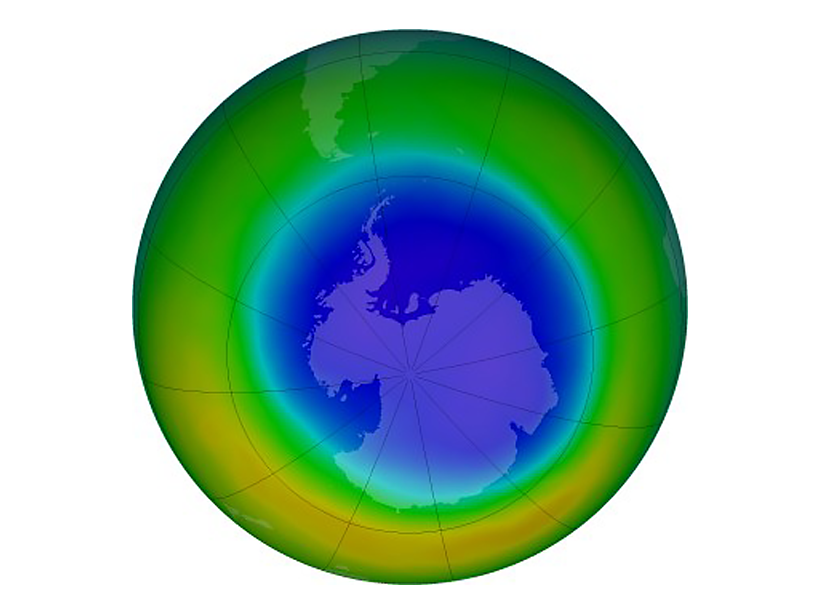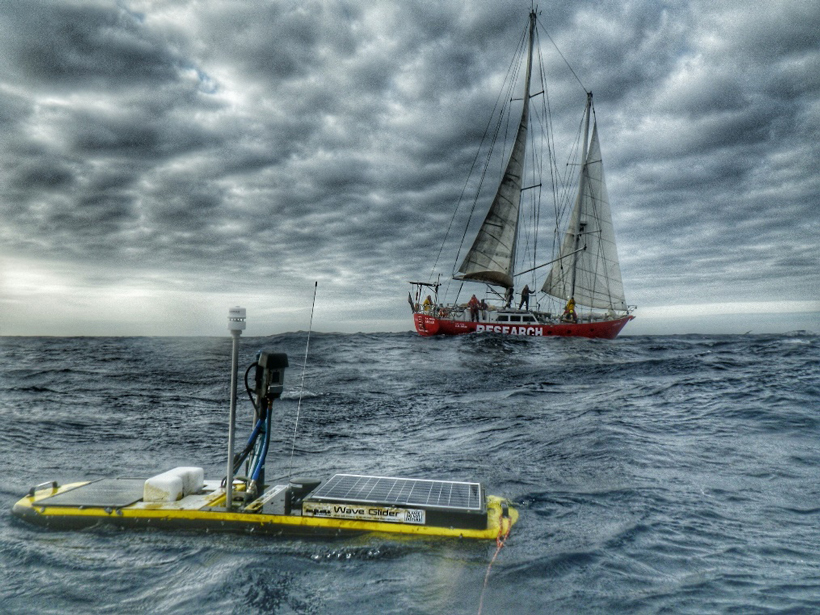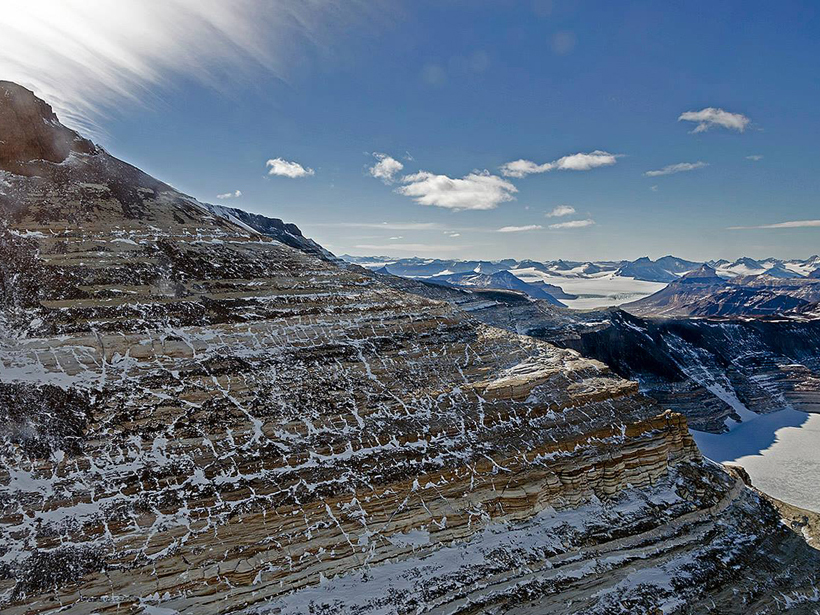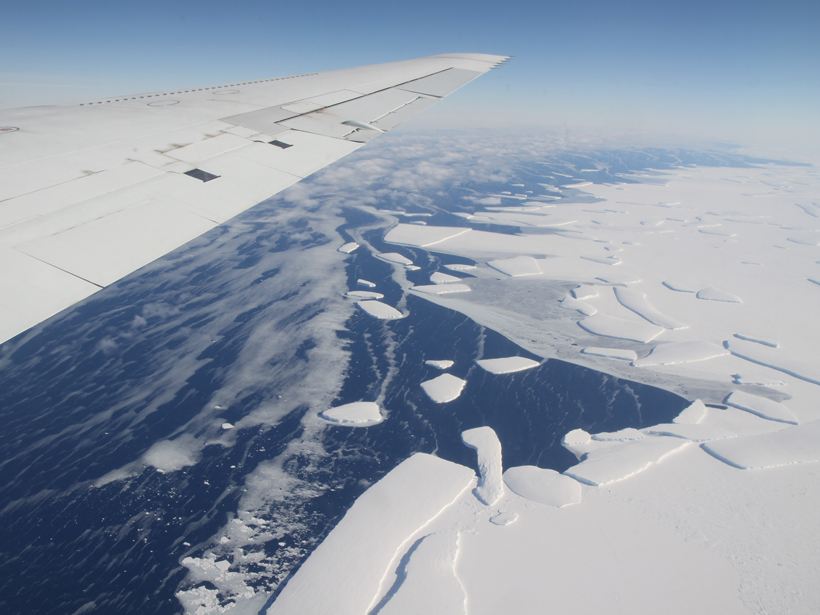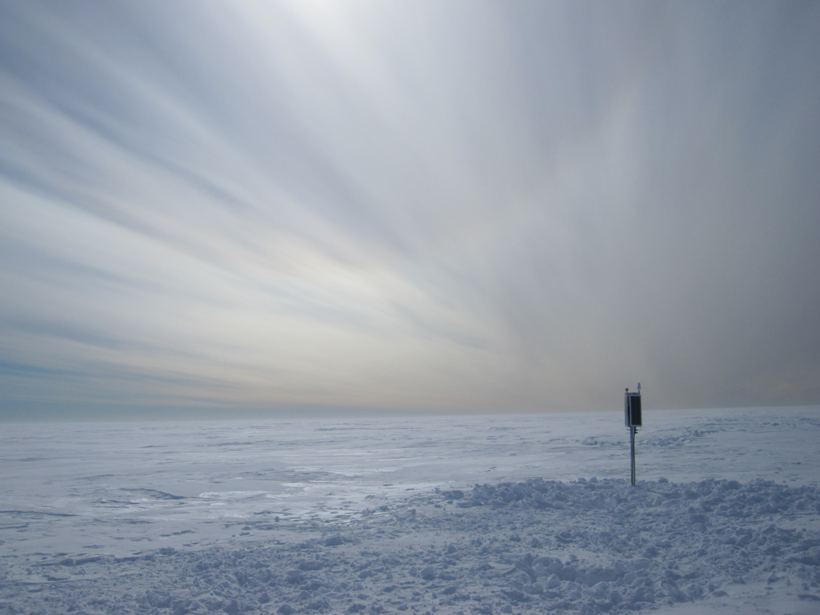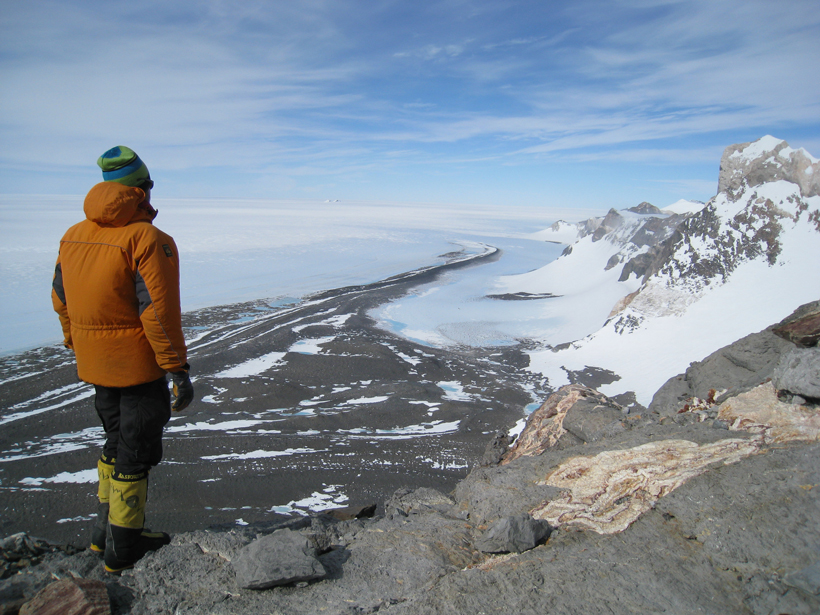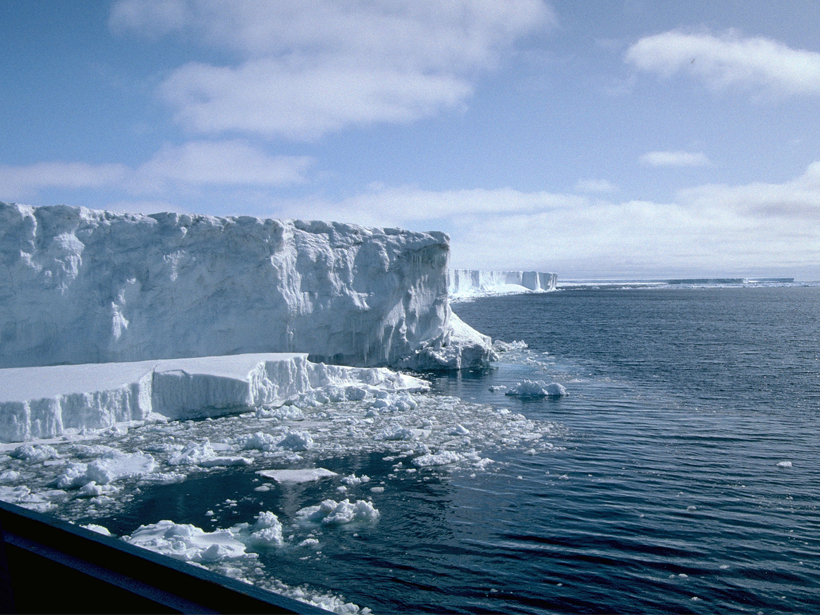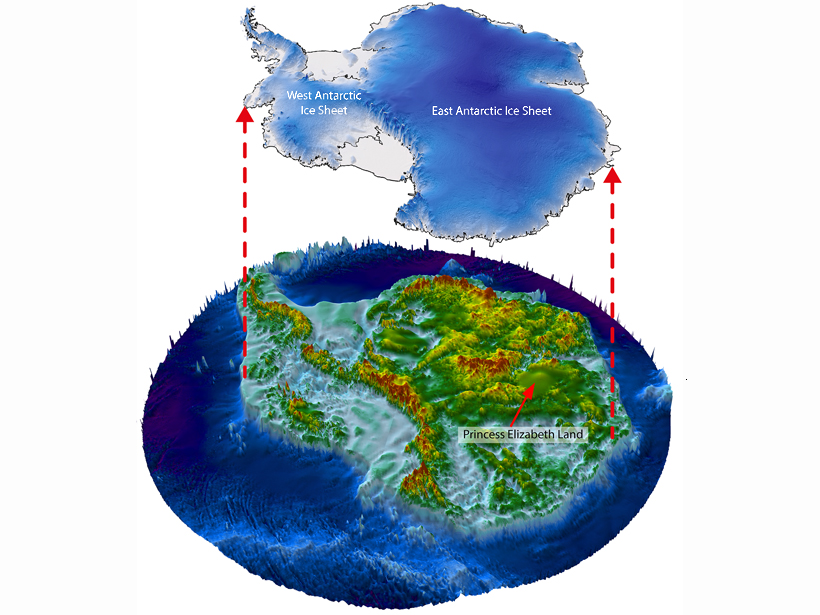The ozone hole over Antarctica has shrunk by 16% since its peak in 2000, and some suspect it may disappear entirely by midcentury.
Antarctica
New Approaches for Air-Sea Fluxes in the Southern Ocean
Air-Sea Fluxes for the Southern Ocean: Strategies and Requirements for Detecting Physical and Biogeochemical Exchanges; Frascati, Italy, 21–23 September 2015
Antarctica Gets a New Gravity Map
A comprehensive collection of variation in Earth's gravity could aid studies of the Antarctic geoid and of Antarctica's geology and ice sheet dynamics.
Scientists Find the Point of No Return for Antarctic Ice Cap
Varying amounts of glacial debris in a core of ancient sediment show the ice cover grew and shrank until airborne carbon dioxide levels fell below 600 parts per million, spurring steady growth.
Ocean Waves Vibrating the Ross Ice Shelf
Scientists use seismic stations to study ice shelf vibrations generated by ocean waves to better understand their impact on the integrity of the Ross Ice Shelf.
Pleistocene Rocks Tell Tale of Past Ice Sheet Melting
Researchers examine evidence from a past interglacial period to predict sea level rise in the future.
Tracking the Fate of Antarctica's Ice
New, more accurate satellite data provide researchers with ice shelf thickness measurements that will allow for better ice loss monitoring.
Antarctic Meltwater Makes the Ocean Warmer and Fresher
Scientists model how Antarctic meltwater from specific locations could affect the Antarctic Bottom Water, ocean temperatures, and salinity.
Antarctic Ice May Harbor Huge Network of Canyons
Scientists saw hints in satellite data of dramatic geologic features under thousands of meters of ice in a little-probed part of East Antarctica. Now they are using airborne radar to explore further.
Climate Change Drives Increasing Snowfall in Western Antarctica
Using ice core records from West Antarctica, researchers look back at the past 300 years of snowfall over the Amundsen Sea.

